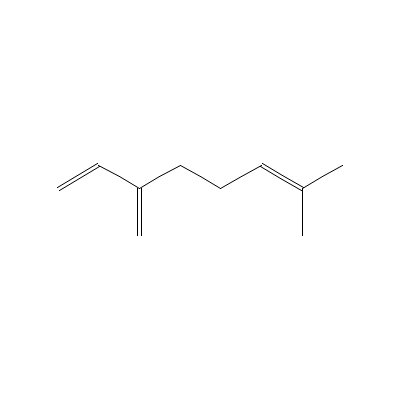| |
|
|
Botanical Name |
: |
Commiphora mukul |
English
Name |
: |
Indian Bedellium, Guggula, Gugal |
Synonym(s) |
: |
Balsamodendron mukul, Balsamodendron agollocha, Commiphora africana |
Family |
: |
Burseraceae |
| |
General Info
| Description |
 |
|
A small tree or shurb with spinescent branches. The leaflets are 1-3 in number, ovate in shape, irregularly toothed argin. Flowers small, brown to pink, unisexual. Calyx shows glandular hairs, forming cylindrical cap; Petals 4-5 times as long as sepal. Stigma 8-10, stigma, inconspicuously bilobed. Fruit-drupe, red, ovate, accuminate in shape, with 2-celled store, rarely 4 valved. |
| Herb Effects |
 |
|
Alterative, analgesic, antispasmodic, aperient, astringent, carminative, demulcent, emmenagogue, expectorant, nervine, rejuvenative, and stimulant. |
Chemistry
| Active Ingredients |
 |
|
Myrcene, dimyrcene, and polymyrcene |
| Chemistry
of Active Ingredients |
 |
|
|
 |
Name |
CAS# |
IUPAC Name |
Formula |
Structure |
 |
|
| Myrcene |
2153-31-3 |
7-methyl-3-methylide
ne-octa-1,6-diene |
C10H16 |

|
|
Pharmacology
| Medicinal Use |
 |
|
Arthritis, bronchitis, enlarged cervical glands, high cholesterol, cystitis, diabetes, endometriosis, gout, hemorrhoids, indigestion, leukorrhea, lumbago, nervous disorders, neurosis, rheumatic disorders, skin diseases, tumors, ulcers. |
| Contraindication |
 |
|
Guggul should be used with caution by people with liver disease and in cases of inflammatory bowel disease and diarrhea. Early studies with the crude oleoresin reported numerous side effects, including diarrhea, anorexia, abdominal pain, and skin rash. Modern extracts are more purified, and fewer side effects (e.g., mild abdominal discomfort) have been reported with long-term use. |
Dealers
Products
|
|